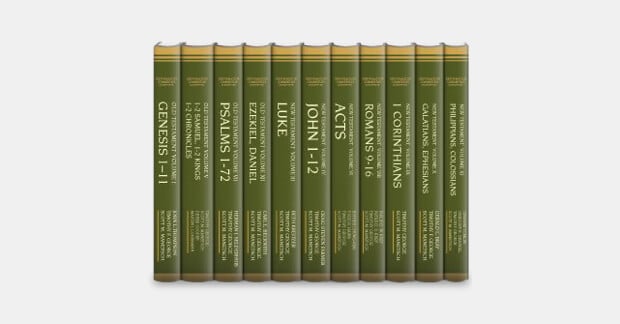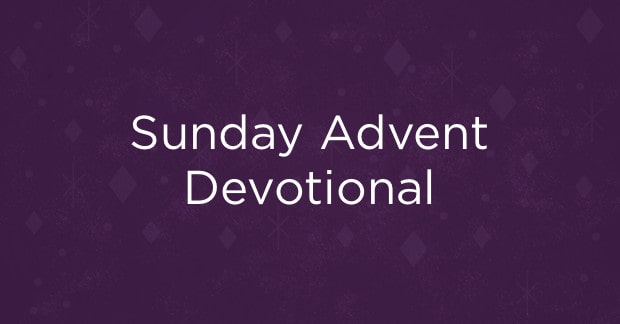The Reformation Commentary on Scripture is an important and growing collection of biblical commentary.
Esteemed Christian historian Mark Knoll says of it, “The Reformation Commentary on Scripture is a major publishing event—for those with historical interest in the founding convictions of Protestantism, but even more for those who care about understanding the Bible . . . ”
I had the pleasure of studying under the series editor, Dr. Scott Manetsch, in seminary, and was eager to look into the resource and see what it was like.
What I found was an eminently useful, helpfully organized work. The commentary follows a clear structure:
- ESV translation of the literary unit
- Overview notes from the commentary editor, highlighting what to look for in the selections from the Reformers
- Various comments from the Reformers, titled and sourced
This means that at a glance you can find the verse you want commentary on and know generally what the comments are about, who said them, and where they said them (for further research). It makes for quick yet thorough study.
See for yourself in this excerpt from the commentary on Psalm 1 (excluding the translation).
***
Psalm 1:1–6: The Two Ways
Overview: For our Reformation commentators, this brief psalm serves as a significant introduction to the whole Psalter, and it thus establishes the appropriate attitude with which one should approach the Psalms. By pointing to the blessings of God’s law, this psalm encourages believers to take delight in, meditate on and cherish the law of the Lord, which for the reformers corresponds with their emphasis on the Word of God, as expressed by the principle of sola Scriptura.
In addition, they point out, this opening psalm lays before the reader the two paths of life—and their respective consequences—very clearly: the pious will be blessed, and the impious will receive God’s just punishment. These exegetes wield christological interpretation throughout the Psalms—and the whole of Scripture—and the introductory psalm is no exception. Here they understand Christ as the blessed man and the water that refreshes and sustains life. Although the worldly condition of believers may not always reflect God’s blessing, and although the reality of sin persists, by God’s grace and faith in Jesus Christ they will delight in God’s Word and follow God’s way.
Psalm 1 as Rule and Guide to All Psalms. John Calvin: Whoever collected the Psalms into one volume, whether Ezra or some other person, appears to have placed this psalm at the beginning by way of preface, in which he admonishes all believers to meditate on the law of God. The sum and substance of the whole is, blessed are those who focus on the pursuit of heavenly wisdom; but the profane despisers of God, although for a time they may consider themselves happy, shall eventually come to a most miserable end. From Commentary on the Psalms.
The Scope of Scripture. Nikolaus Selnecker: This psalm is an appropriate entrance into the whole Psalter, for it has the true scope of all the holy Scriptures, namely, it preaches about the Word of God and admonishes us that we should cherish and love it, and we should gladly listen to and learn from it. The Word of God alone is the beautiful garden of delight and paradise in which we are able to have all our joy, delight and refreshment in this life, and should bear our fruits and live. […] (The Whole Psalter.)
The Reward, Glory and Joy of This Psalm. Desiderius Erasmus: Despite its extreme brevity, this psalm deals with vital and universal themes. It begins by offering a great reward, bliss; it appeals to everyone to shun vice and turn to the pursuit of virtue, and by obeying divine law to be renewed, to flower again in Christ, in whom they are already engrafted through baptism. Second, it enhances the glorious destiny of the pious by contrasting it with the very different lot of the impious, even in this mortal life. Finally, it reveals the happiness which awaits the pious in the Last Judgment and the punishment which awaits the impious. (Exposition of Psalm 1:1–2 Shun the Wicked, Choose the Law.)
Christ Is This Blessed Man. Martin Luther: The first psalm speaks about Christ—literally—thus: Blessed is the man. He is the only blessed One and the only Man from whose fullness they have all received that they might be blessed and men and everything that follows in this psalm. He is “the firstborn among many brothers,” “the firstfruits of those who have fallen asleep,” so that he might also be the firstfruits of those who are awake, namely, in the Spirit. For it is also written in the roll of this book concerning him, to do the will of God. He is a man in a threefold sense: first, because he is a man of manly virtue; second, because he is not a boy to be educated but is manly in grace; third, because he has a bride. This is the Man whom a woman has embraced, because as a bridegroom he went forth not only after but also from his chamber, having his own bride from the beginning. (First Psalms Lectures (1513–1515).)
Adapted from Reformation Commentary on Scripture, OT vol. 7: Psalms 1-72, ed. by Herman J. Selderhuis (IVP Academic, 2015).
***
Get the Reformation Commentary on Scripture Collection today.





